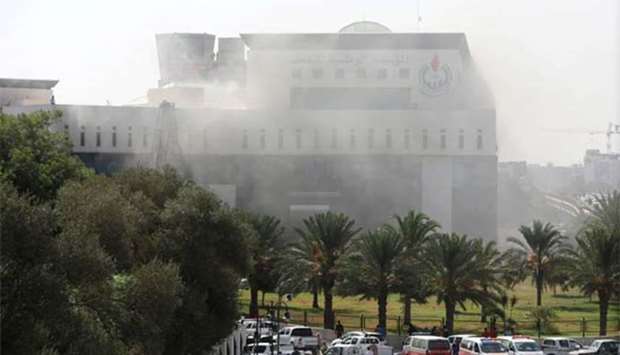The European Union hopes that this week's peace conference on Libya, being hosted by Berlin, will drive forward the political process towards a ceasefire in the conflict-ridden country, a spokesman said on Wednesday.
Germany has organised Sunday's summit in coordination with the United Nations, which is overseeing consultations on a peaceful solution to the Libya conflict.
Libya's internationally recognised prime minister, Fayez al-Serraj, and rebel leader Khalifa Haftar have been invited, alongside representatives from Britain, France, China, the United Arab Emirates (UAE) and Turkey, and top officials from several African and Arab states.
It remains unclear whether the two rival Libyan leaders will attend, a German government spokeswoman said on Wednesday. They had been asked to join Chancellor Angela Merkel at her chancellery at 2 pm (1200 GMT) on Sunday.
The European Union is to be represented at the Berlin talks by European Council President Charles Michel and foreign policy chief Josep Borrell, with European Commission President Ursula von der Leyen also expected to attend.
‘The expectations are ... that the Berlin conference will move the political process forward in terms of possible agreement on the ceasefire,’ EU foreign policy spokesman Peter Stano said in Brussels.
Member states have mandated Borrell to enforce whatever is agreed in Berlin, Stano added, pointing in particular to any ceasefire deal and the implementation of an existing UN arms embargo on Libya.
However, Ulrike Demmer, deputy spokeswoman for the German government, sought to rein in expectations ahead of the Berlin talks.
‘The Berlin Libya conference is not the end of a political process, rather only the beginning,’ Demmer said.
‘The solution to all of Libya's problems cannot be achieved on this one day,’ she added.
A German Foreign Office spokesman said the conference was ‘well prepared’ and that the government was approaching it with optimism.
An international follow-up committee is also planned, he added.
The Berlin summit was convened after Russian and Turkish-backed ceasefire talks in Moscow ended in failure.
Libya has been in turmoil since the 2011 overthrow of long-time dictator Moamer Gaddafi.
The oil-rich country has two competing administrations: the UN-backed government of al-Serraj in Tripoli and that of Haftar, based in the eastern city of Tobruk.
Libya has become a major transit route for migrants, mostly Africans, trying to reach Europe by boat. Many thousands have been rescued or have drowned at sea.

